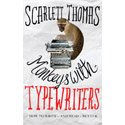 At nearly 50,000 words into my current WIP, I hit a dead zone.
At nearly 50,000 words into my current WIP, I hit a dead zone.
Until that point, everything had been sailing along fairly smoothly. I would sit at the computer, the ideas would come, the word count would creep steadily upwards. Happy days!
Until I hit some rough weather and started taking in water from all sides. To continue the sailing analogy (interesting, as I don’t like sailing AT ALL) it was the perfect storm – if, by ‘storm’, you count a major university assignment, a sticky plot point, a holiday (okay, the holiday bit was lovely) and a general dearth of ideas and inspiration.
What to do?
Popular wisdom would have encouraged me to ‘just keep going’! But I couldn’t. I actually couldn’t because I had to do the damn assignment, which came with a damn deadline, which meant all my lovely creative writing time went out the window. And the five day holiday, while lovely, seemed to throw me out of routine for weeks.
I was stuckity, stuck, stuck, stuck.
So I read a book about writing.
Monkeys with Typewriters (Scarlett Thomas) is not the first book I’ve read about writing. But it’s certainly the most practical.
Until I picked it up, I don’t think I’d ever heard of the Infinite Monkey Theorem, which goes like this – you give a monkey a typewriter and enough time, they will eventually produce the works of Shakespeare, simply by randomly bashing the keys.
Initially, Thomas used the theory to prove to her students that it wasn’t necessary to be a genius in order to produce a great work of art. Even a monkey could do it, given a few billion years.
But could a monkey do it? Would we want a monkey to do it?
Thomas had an epiphany.
‘We love writers… Writers are important to us because they look at the world and see something interesting, and they manage to write it down in a way that makes our brief lives more substantial. We know that writers appreciate beauty, whatever we think that is, just as we do, because they are human. Humans are not able to sit around writing randomly until the end of time. We are fragile, finite and afraid. We suffer.’
And so, Thomas started teaching her students differently. She taught them how to prepare to write – how to identify their interests, their knowledge, what’s interesting about them – and, importantly, how to translate that in a fictional way to the page.
Usually, writing books fall into two camps – those that are inspirational and memoir based (such as Elizabeth Gilbert’s Big Magic, Stephen King’s On Writing or Anne Lamott’s Bird by Bird – all excellent and worthwhile) or those that are highly prescriptive and teach you ‘the formula’ of writing (these mainly relate to genre fiction, and as I don’t write ‘genre’, I haven’t read any of them) .
Monkeys with Typewriters falls somewhere between the two.
Thomas refers to her own practice, but she also uses plenty of examples from other writers and she has loads of tips for building plot, theme and character. There are these matrix things she uses which I swear, if used correctly, mean you need never suffer writers block ever again.
A book on writing can’t write a book for you. That’s true. But it can teach us a lot about the ingredients required for ‘good’ writing – honesty, authenticity, a decent plot, compelling characters.
For me, this book was a circuit breaker.
No. Actually it was the opposite of that. It was a circuit re-connector. It got my head back in the game. Made me excited about sitting down to write again.
Here’s the proof. Today, I sat down and busted out 2,000 words. It was easy. I’m not saying I won’t fall into a hole again. I probably (definitely) will. But at least next time I’ll have some idea of how to get out.

2 Comments
Jane Messer
Great that you’re writing again, Cassie
cassandrahamer@hotmail.com
Thanks Jane. I trust you are still writing as well! I look forward to reading your next novel…
Comments are closed.